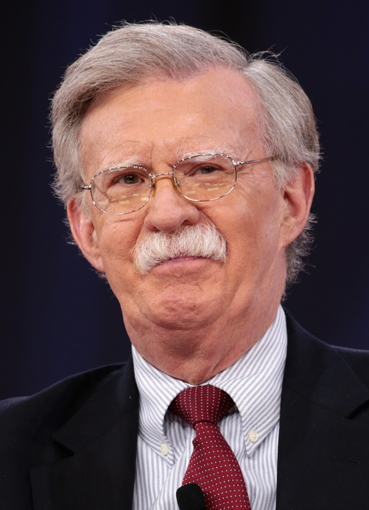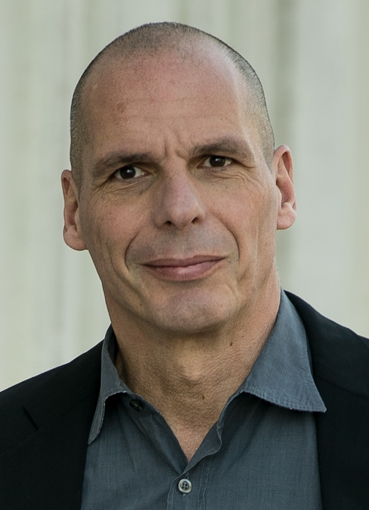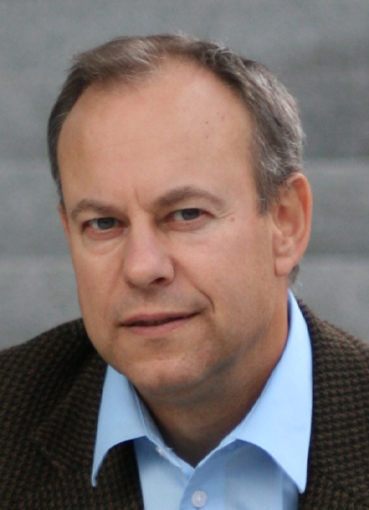The 2020 Holberg Debate: “Is Global Stability A Pipe Dream?”
At the 2020 Holberg Debate, Amb. John Bolton and Member of the Hellenic Parliament Yanis Varoufakis discussed current threats to regional and global stability.
As 2020 is coming to a close, it seems that annus horribilis is an apt label. This year, social upheaval, political instability, natural disasters and risks of new large-scale military conflicts have characterized both Europe, the Americas, the Middle East and East Asia and brought about new levels of uncertainty.
The year literally started with a bang, as the US drone-killing of General Qasem Soleimani--the leader of Iran’s Revolutionary Guard Corps, accused by the US of planning terrorism--almost triggered a war between the two countries. Since then, one crisis has succeeded another, both in terms of natural disasters, such as the current global pandemic and the catastrophic wildfires in the US and in Australia, and in terms of man-made phenomena.
As an unruly mix of mass protests, riots and police crackdowns have marked the better part of the year both in the US and Europe, the fallout seems unclear, and it raises the question of whether or not the issues at hand can be resolved within the current party structures. Is there a crisis of governance playing out in European capitals as well as in Washington, DC, and if so, how should governments respond?
Are we seeing an even deeper crisis, as many on the Left would argue—i.e. one where capitalism itself has caused unsurmountable problems, to the extent that the current system can only be held in place by repression? Must the EU change fundamentally in order to deal with large-scale problems, such as those of social justice, migration and lack of representation, and must the Union democratize before it disintegrates, as advocated by Yanis Varoufakis and the DieM25 movement he co-founded?
Or is democracy itself dependent on free markets and adherence to pro-Western policies? Are governments that reject neo-liberal reforms doomed to become authoritarian, and should the US be a driving force for regime change in countries such as Venezuela, Cuba and Nicaragua—dubbed the Troika of Tyranny by Amb. John Bolton?
What are the prospects of a good and stable relationship between the US and Europe on the one hand and Russia and China on the other, particularly following the November 3 US presidential election? And are we, once again, on the brink of military conflict between the two NATO allies Greece and Turkey?
We look forward to hearing Amb. John Bolton and Yanis Varoufakis discuss current threats against social and political stability, and how the West should address those challenges.
Participants

John Bolton
John Bolton is an American attorney, diplomat, Republican consultant and political commentator who served as the 25th United States Ambassador to the United Nations from 2005 to 2006 and as the 27th United States National Security Advisor from 2018 to 2019. He has also served in various positions in the US Administration under Presidents George W. Bush, George H. W. Bush and Ronald Reagan. Amb. Bolton is the author of three books: Surrender Is Not an Option: Defending America at the United Nations and Abroad (2007); How Barack Obama Is Endangering Our National Sovereignty (2010); and The Room Where It Happened: A White House Memoir (2020), where he describes his time as National Security Advisor for U.S. President Donald Trump from April 2018 to September 2019.

Yanis Varoufakis
Yanis Varoufakis is a member of Greece’s Parliament and parliamentary leader of MeRA25, the Greek political party belonging to DiEM25 – Europe’s first transnational pan-European movement. Previously he served as Greece’s Finance Minister during the first six months of 2015, as a member of Syriza, and he led negotiations with Greece's creditors during the government-debt crisis. Varoufakis has taught economics at the universities of East Anglia, Cambridge, Sydney, Glasgow, Texas and Athens where he still holds a Chair in Political Economy and Economic Theory. He also holds several honorary professorships. He is the author of a number of best-selling books, including Adults in the Room: My Battle With Europe’s Deep Establishment (2017); Talking to My Daughter About the Economy: A brief history of capitalism (2017), And the Weak Suffer What They Must? Europe, Austerity and the Threat to Global Stability (2016). His latest book is Another Now: Dispatches from an Alternative Present (2020).

Moderator: Scott Gates
Scott Gates is an American political scientist and economist based in Norway. He is currently Professor of Political Science at the University of Oslo (UiO), as well as Guest Researcher at UiO’s Department of Economics. Gates is also Research Professor at Peace Research Institute Oslo (PRIO), and he is Editor of the Journal of Peace Research, and of the International Area Studies Review. From 2002 to 2013, Gates was director of PRIO’s Centre for the Study of Civil War. Gates has previously worked at the Norwegian University of Science and Technology (NTNU) and Michigan State University (MSU).